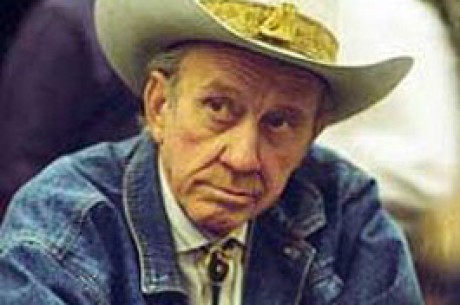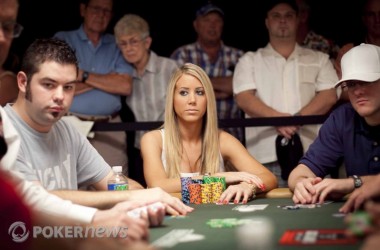'Kill Phil' - New Age Tournament Poker

Tournament poker has undergone a drastic change since the beginning of the century. For more than a couple of decades, the "old school" cash game style of the Texas road gamblers seemed to be the way that most followed in poker. It is a grind it out style, one where players sit back and wait for those big hands and the "moments of terror" that they bring. Blair Rodman and Lee Nelson are looking to change that theory of thought.
Rodman has enjoyed a significant renaissance in 2005, although the veteran professional didn't do badly prior to this year. In 2004, Rodman was ranked 64th among tournament players and, in 2005, finds himself in the mix as the Poker Player of the Year battle heads into its final tournaments in 26th place. He has captured over $500,000 this year and has had a couple of near-miss tournaments, finishing second to Arnold Spee at the WPT's World Poker Challenge in April and also second to Andy Bloch at the Ultimate Poker Challenge II in July. Nelson has been a top rated tournament poker player in Australia and Asia, taking the Seven Card Stud championship at the Aussie Millions in 2005. They have come up with what seems to be a radical new approach to the world that is tournament poker and that is to "Kill Phil"!
Not in the literal sense, mind you. "Kill Phil" is the tongue firmly planted in cheek title of the tandem's book to teach no-limit tournament strategy to virtually any player today. It is currently available at any bookstore or through Amazon.com and Huntington Press for a very reasonably priced $24.95 (there is also a message forum where the book's theories are discussed at killphilpoker.com). The book itself could be a breakthrough revelation for many that struggle with the tournament game and any player of any skill level should have it in their library for strategy planning alone.
What Rodman and Nelson have come up with is an excellent strategy for playing against the professionals on the tournament circuit today. The title comes from the predominance of the "Phils" (Hellmuth, Ivey, Gordon, et. al.) and their typically "play the nuts" approach to tournament poker, especially its early stages. While their style doesn't deviate too far from such a mindset, where Rodman and Nelson make their stylistic change is in the play of hands and when to attack.
There are four different levels of the "Kill Phil" strategy that range from the most basic of guides to a high level of intricacy ("Kill Phil Expert" as it is called) which take into account stack size and opponent styles, among other things. They all have a similar strategy in that there is more emphasis placed on pre-flop play and using the "all-in" move, rather than seeing flops and potentially allowing a better poker player to outplay you after that point. The hand groupings that they suggest playing, and the positions to play them from, are similar to other books that have come out, but where they deviate is in the time that they are aggressively played.
"Kill Phil" is a tremendous advocate for the "all-in" poker that many new players in the game seem to use, and with excellent results. The logic in the move is well explained by Rodman and Nelson when they say, "Early in tournaments, a "Phil" is particularly unwilling to risk his entire stack in an all-in confrontation unless he clearly has a big advantage." This is a logical statement; how many times have you seen a Phil (Hellmuth, especially) toss in a big pair during the early going, relying on his skills rather than "races"? Playing small pots and gradually building their stacks? These are points that the book makes clear, that the player who uses the "Kill Phil" styles and strategies are taking advantage of the professionals who want to stay away from confrontations.
The book is a "big pot" tournament poker book and can be especially useful for those that have found that their game has hit a wall that they are having particular trouble getting over. Where I found the book particularly useful is in the adaptation of the strategy as a "gear change" that some players seem to lack in their game. It can be a tremendous way to get a table on tilt and, once you have shown down some winners with less than the best cards, when you do catch a monster hand you can maximize the action that you get, your pots and your wins. It is also a very useful guide to final table strategy, where the use of the "all-in" move is at its best.
The potential downside in the book is that you are using a very risky style. When the theories that "Kill Phil" espouses are working perfectly, then your tournament runs are great and the potential for huge dividends are there. If you miss your hands or are played back at, it can lead to an early exit from events and, potentially, damage to the bankroll. The "Kill Phil" strategies are not for the faint of heart, to put it mildly! It is also not a strategy to use in a cash game setting (where stacks are normally well above the blind structure), but strictly for that of a tournament surroundings where the stacks are finite and there is a ramification for losing all your chips. Additionally, while they do offer an online strategy as well, they are quick to emphasize that the "Kill Phil" strategies are less effective online for a variety of reasons.
All in all, Blair Rodman and Lee Nelson have come up with an aggressive and excellent strategy for anyone to step into the tournament arena and succeed from the start. With "Kill Phil", they have given players a chance to knock heads against the greatest in the game and, in many ways, take the professionals game from them. If, for nothing else, it is a book to read to capture the nuances of someone who is using the style and perhaps formulate a counter-attack for it. "Kill Phil" will definitely help anyone's game on a variety of fronts and should be something that poker players, from beginners to the greatest "experts", should read and have in their libraries!
Ed note: Don't Kill Phil! Just play against him at Ultimate Bet








